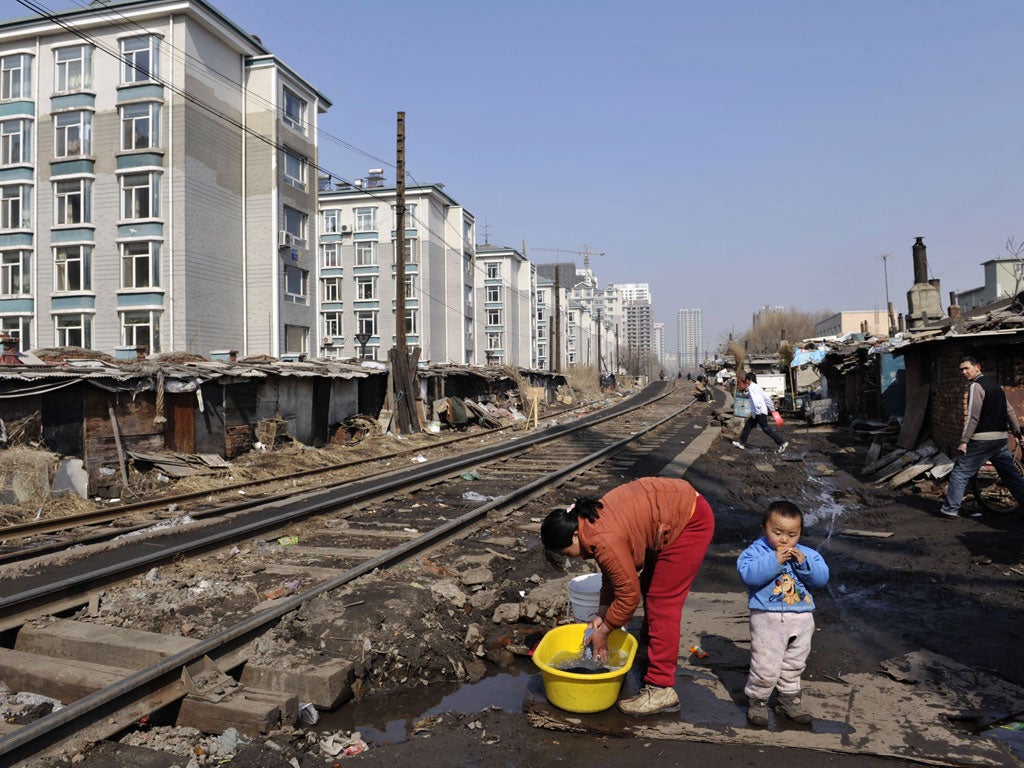Forced eviction in China is a gross violation of human rights and cannot be tolerated
Amnesty International's latest study highlights how the Chinese government's attempts to boost the economy have increased the pace of forced evictions nationwide

The political scandal that triggered the downfall of one of China's top politicians, Bo Xilai, has dominated the headlines in recent weeks. Yet as the country prepares for a change in leadership, there is another tale of abuse of power that continues unabated – the forced eviction of people from their homes and farmland. Deaths, beatings, harassment and imprisonment continue as people are forced from their homes across the country.
Whilst not a new phenomenon, the pace of forced evictions in China has accelerated in the past two years and remains one of the greatest causes of popular discontent - as highlighted in Amnesty International’s latest study. Nearly half of all rural residents have had land forcibly taken from them, with the number of cases on the rise, according to a 2011 study by the Landesa Rural Development Institute.
This escalation is entwined with the Chinese government’s attempts to sustain high levels of economic growth. Local governments that have borrowed huge sums from state banks to finance stimulus projects are now dependent on land sales to cover repayments. Despite a slowdown in the pace of growth, China’s ‘ economic miracle’ continues, with further stimulus measures expected in an attempt to boost the economy.
Local officials that deliver growth climb quickly up the Communist Party career ladder, regardless as to how it is achieved. Land re-development - whether for new roads, factories or residential complexes – is seen by local officials as the most direct path to visible economic results. It is this pursuit of economic growth at all costs; mixed with career advancements and minimal oversight of local officials that has fostered abuse and corruption across the country. This shared agenda between real estate developers and officials has resulted in both being complicit in sustained attacks to force people out of their homes.
Let’s be clear, forced evictions represent a gross violation of China’s international human rights obligations on an enormous scale. These standards demand proper consultation or notice as well as adequate alternative housing but these are seldom given.
Communities targeted for land grabs come under concerted campaigns including the cutting off of essential services like water and heating. Thugs wielding steel rods and knives are often hired to rough up residents. One violent example occurred in Lichang village in Jiangsu Province in April last year. Several hundred men attacked farmers in the village to force them off their land. About 20 women from the village were dragged away and beaten. Sadly, this is a familiar story.
The lack of independence of the Chinese courts means those who wish to challenge an eviction or seek redress have little hope of gaining justice. As one resident of Lichang, in Jiangsu province told Amnesty International: “They [the courts] can’t help us. They don’t pay any attention to the common people… Without the land, we wouldn’t be able to live.”
People that stage resistance to forced evictions often end up in jail or in Re-education Through Labour (RTL) Centres without charge or trial. Authorities in Shandong province sentenced Li Hongwei, a victim of forced eviction, to 21 months RTL detention for delivering two protest speeches in a plaza in May last year.
With no access to justice some have turned to violence or even self-immolation as a last resort. Amnesty International collected reports of 41 cases of self-immolation from 2009 – 2011 alone due to forced evictions. That compares to fewer than 10 cases reported in the entire previous decade.
Far from sharing in the riches of redevelopment, those that lose their homes in forced evictions often find themselves living in poorly constructed dwellings far away from jobs, schools and public transport.
Premier Wen Jiabao has acknowledged the gravity of the situation and there has been some progress towards protecting some people against forced evictions. Regulations adopted in 2011 stated that compensation for homeowners must not be lower than market value and outlawed the use of violence. Yet the rhetoric and regulations have not changed the reality for many. As China’s urban sprawl continues, developers are relentless in seizing adjacent rural land.
Rural communities, not protected by the new regulations, continue to be forced out, and priced out, of areas they have lived in their whole lives. Dependent on their land for their livelihoods and with no comprehensive social welfare safety net, rural residents are particularly vulnerable to severe economic hardship after evictions.
It is long overdue for central government to take comprehensive action to end forced evictions and ensure international standards are met. When the political elite gather in Beijing in early November they would be wise to heed the warnings of this popular discontent and end this dark side to China’s economic miracle.
Nicola Duckworth is Senior Director of Research at Amnesty International.
Join our commenting forum
Join thought-provoking conversations, follow other Independent readers and see their replies
Comments
Bookmark popover
Removed from bookmarks